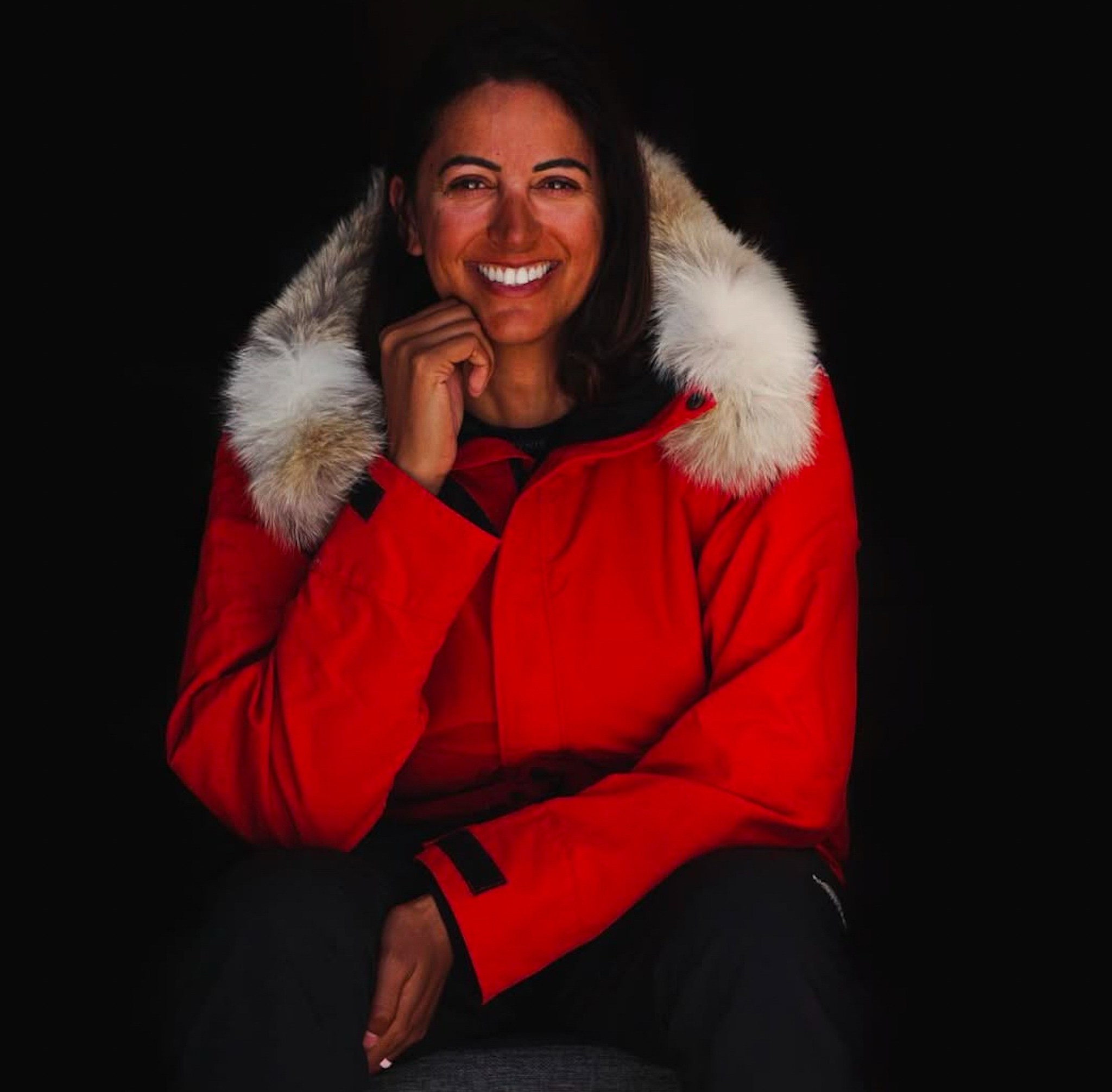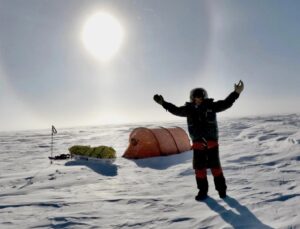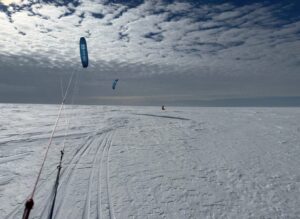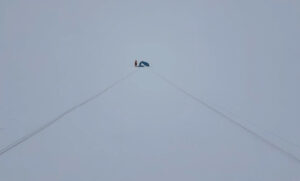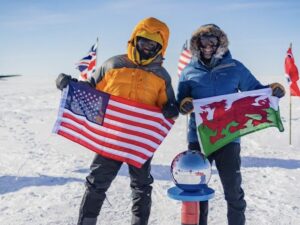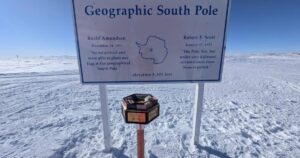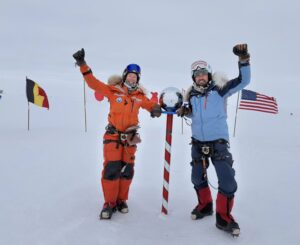Assuming she can raise over a million dollars, British adventurer Preet Chandi wants to ski alone to the North Pole from Canada. In a post seeking funding, Chandi indicated her goal is to become the first woman to complete the journey solo. Other media reports suggest she also aims to travel unsupported, which means no air drops of supplies. She has not provided a timeline for the expedition.
So far, only Borge Ousland and Pen Hadow have made unsupported solo treks to the North Pole from Russia and Canada, respectively. Eric Larsen and Ryan Waters completed the last full-length expedition from land in 2014.
The most recent British woman to attempt the trek was Hannah McKeand in 2018, but she could not start due to a helicopter crash. Rosie Stancer came within 89 nautical miles of the Pole in 2007 before being evacuated after already self-amputating her frostbitten toes.
Logistical challenges
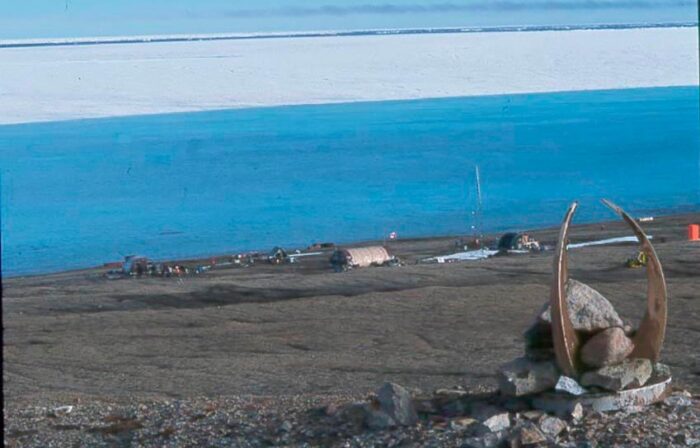
Ward Hunt Island, shown here in summer, lies at the north end of Ellesmere Island, on the edge of the Arctic Ocean. From this former military outpost, it’s 768km to the North Pole. Photo: Jerry Kobalenko
Logistically, reaching the North Pole from land is more complicated and costly than the South Pole. Since 2015, Calgary-based Kenn Borek Air has stopped providing drop-off, pickup, and rescue services to North Pole adventurers due to declining ice conditions and unwillingness to take on the liability. This left the floating Barneo ice camp, usually established around 100km from the Pole for a few short weeks every spring, as the primary option for evacuation. It has not opened since 2018, however. In 2023, Vincent Colliard canceled his own North Pole attempt when Barneo failed to operate again.
Chandi has not confirmed her exact start point, but it will likely be either Cape Columbia on Ellesmere Island or Ward Hunt Island, located at 83˚06′. The distance to the Pole from there is 768km. However, the current constantly pushes you back toward land, so skiing north is like going up a down escalator.
Getting to Ward Hunt also requires an expensive six-hour charter flight. A major obstacle for Chandi will be organizing a potential rescue and pickup from the Pole, given that Kenn Borek and Barneo are no longer available. This is likely why she aims to raise an eye-popping $1.2 million for the expedition. So far, she has only collected a few thousand dollars, so with early March, the traditional start time, just two months away, it’s unlikely this will happen this year.
A slim chance
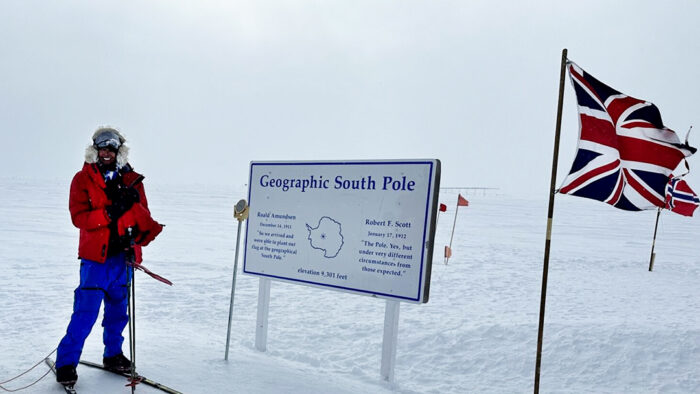
Preet Chandi currently holds the Women’s speed record to the South Pole and has skied to the South Pole alone and unsupported from Hercules Inlet three times. Photo: Preet Chandi
Chandi estimates her chances of success at 5-10%, a sensible assessment given the unique challenges of the Arctic Ocean. While she has completed three South Pole expeditions, the Arctic Ocean’s thin and broken ice, open water, and towering ice blocks are a different beast from the flat sledding she has experienced to date. As Richard Weber and Misha Malakhov wrote after their own legendary North Pole from Canada and return trek in 1995, “Nothing can prepare you for it; success elsewhere, even in Antarctica, doesn’t transpose.”
